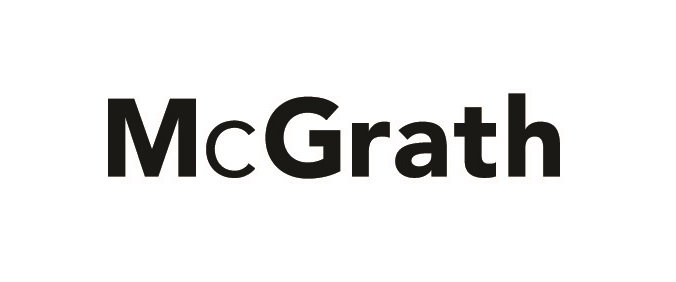The Role of AI Plumbing
In the rapidly evolving landscape of modern plumbing, the integration of artificial intelligence (AI) stands poised to revolutionize traditional practices. As the demand for more efficient, sustainable, and cost-effective solutions continues to grow, AI emerges as a pivotal technology reshaping the future of plumbing. From predictive maintenance to enhanced energy management, AI-powered systems promise to not only streamline operations but also usher in a new era of reliability and innovation in the plumbing industry.
This article explores the transformative role of AI in plumbing, delving into its benefits, applications, and the challenges it presents. By examining how AI enhances efficiency, reduces costs, and navigates privacy concerns, we uncover the profound impact of this new plumbing technology on industry trends and the broader landscape of plumbing services. Let’s delve into how AI plumbing is shaping the future of this essential infrastructure sector.
Benefits of AI Integration in Plumbing
The integration of AI in plumbing brings forth a multitude of benefits that enhance efficiency, reliability, and customer satisfaction. By leveraging AI technologies, such as machine learning algorithms and predictive analytics, plumbing systems can anticipate and preemptively address potential issues before they escalate. This proactive approach not only reduces the likelihood of disruptive breakdowns but also minimizes downtime and service disruptions for homeowners and businesses alike.
AI-driven predictive maintenance is one of the standout advantages, where sensors and data analytics continuously monitor the health of plumbing systems. This capability allows for timely interventions, optimizing maintenance schedules and extending the lifespan of equipment. Consequently, homeowners benefit from reduced repair costs and increased peace of mind, knowing that their plumbing infrastructure operates at peak efficiency.

Moreover, AI facilitates smarter resource management in plumbing operations. Through real-time data analysis, AI systems can optimize water flow, detect leaks early, and adjust usage patterns based on demand fluctuations. This not only conserves water but also contributes to significant cost savings over time, aligning with sustainability goals and regulatory requirements.
The implementation of AI in plumbing also enhances customer service by providing proactive insights and personalized recommendations. AI-powered systems can analyze historical data to predict customer preferences, anticipate service needs, and offer tailored solutions. This level of personalized service not only improves customer satisfaction but also strengthens long-term customer relationships, fostering loyalty and repeat business.
Furthermore, AI integration enables remote monitoring and control of plumbing systems, allowing technicians to diagnose issues remotely and perform preemptive maintenance tasks. This remote capability reduces response times for emergencies and minimizes the need for on-site visits, thereby optimizing operational efficiency and service delivery.
Automation and Robotics in Modern Plumbing Services
The advent of automation and robotics marks a significant leap forward in modern plumbing services. AI-powered robots can perform a range of tasks that traditionally required manual intervention, such as pipe inspection, cleaning, and even complex repairs in hard-to-reach areas. These robots are equipped with advanced sensors and actuators, enabling precise maneuverability and operation under diverse conditions.

For instance, robotic plumbers equipped with AI can navigate intricate pipe networks autonomously, swiftly identifying blockages or structural weaknesses. This capability not only expedites diagnosis and resolution but also enhances overall service delivery by reducing human error and improving service consistency.
In addition to inspection and maintenance tasks, AI-driven robotics excel in routine operations, such as valve adjustments and system monitoring. These robots can operate continuously, 24/7, without fatigue, ensuring round-the-clock vigilance and responsiveness to plumbing needs. This enhanced operational capability not only increases productivity but also extends the service life of plumbing infrastructure through regular, proactive maintenance.
AI Applications for Energy Efficiency in Plumbing Systems
AI’s applications extend beyond maintenance and automation to optimize energy efficiency within plumbing systems. By analyzing historical usage data and real-time environmental factors, AI algorithms can fine-tune energy consumption patterns. This includes optimizing heating and cooling cycles, adjusting water temperature based on user preferences and occupancy patterns, and integrating with smart grid technologies for synchronized energy management.
Such capabilities not only reduce operational costs but also contribute to sustainability efforts by minimizing energy waste. In residential and commercial settings alike, AI-enabled plumbing systems serve as proactive stewards of energy resources, aligning with global initiatives for greener infrastructure and reduced carbon footprints.

Moreover, AI facilitates predictive modeling for energy demand and consumption patterns, enabling proactive adjustments to mitigate peak loads and optimize resource allocation. By forecasting energy needs based on historical data and external variables, AI systems empower plumbing operators to make informed decisions that balance operational efficiency with environmental stewardship.
Challenges and Limitations of AI in Plumbing
Despite its transformative potential, AI integration in plumbing is not without challenges and limitations. Privacy concerns emerge as a significant issue, especially with the proliferation of IoT devices and data-driven plumbing solutions. Customers may express apprehension regarding data security and the potential misuse of personal information collected by AI-enabled systems.
Moreover, the upfront costs associated with implementing AI technologies in plumbing can be prohibitive for some businesses and homeowners. Initial investments in AI infrastructure, including sensors, data analytics platforms, and training personnel, may require substantial financial commitment before realizing long-term benefits.
Additionally, the complexity of AI systems necessitates ongoing maintenance and updates to ensure optimal performance. Regular software updates, cybersecurity measures, and training for personnel are essential to mitigate risks and maximize the longevity of AI investments in plumbing infrastructure.
Conclusion
Artificial intelligence (AI) is reshaping the plumbing industry by enhancing efficiency, sustainability, and customer satisfaction. AI-driven predictive maintenance reduces downtime and repair costs, while real-time data analysis optimizes resource management and promotes water and energy conservation. Automation and robotics improve service quality through precise, round-the-clock operations and maintenance. Despite these benefits, challenges like privacy concerns and initial investment costs must be addressed. By overcoming these hurdles with robust cybersecurity measures and strategic planning, stakeholders can fully leverage AI’s potential to deliver smarter, more sustainable plumbing solutions. Looking ahead, AI promises continued innovation, empowering the industry to meet evolving demands while advancing environmental stewardship and operational excellence.
FAQ
How does AI improve the efficiency of maintenance tasks in plumbing?
AI enhances maintenance efficiency by predicting potential issues before they escalate, enabling proactive repairs and reducing downtime. Real-time monitoring and data analysis streamline workflows, allowing for timely interventions and optimized resource allocation.
What are the cost savings associated with implementing AI in plumbing?
Implementing AI in plumbing leads to significant cost savings through reduced downtime, minimized repair expenses, and optimized resource usage. Predictive maintenance lowers the frequency of emergency repairs, while efficient resource management cuts operational costs over time.
Are there privacy concerns related to AI implementation in plumbing?
It raises privacy concerns due to data collection from IoT devices and customer usage patterns. Safeguarding personal data and ensuring compliance with privacy regulations are critical to building trust with customers and stakeholders alike.
Trusted By












